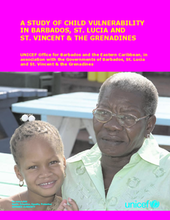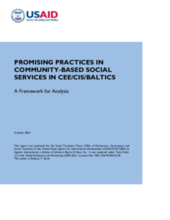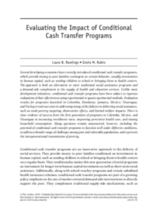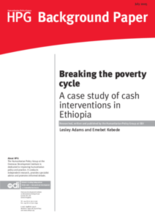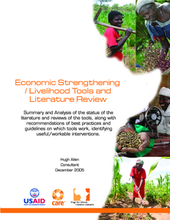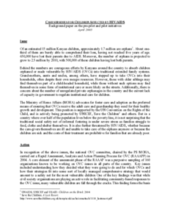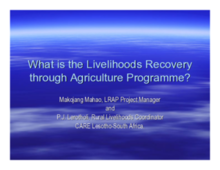Displaying 471 - 480 of 505
Country-based analysis of child vulnerability in Barbados, St. Lucia, and St. Vincent & the Grenadines. Includes statistical and demographic data on vulnerable populations. Identifies specific barriers to meeting regional needs in child protection.
This report presents an overview of the Millennium Development Goals and ‘A World Fit for Children’ commitments, the situation of children in the Islamic world, and the constraints and challenges facing children in the region in regards to health, education, poverty, child protection, and HIV/AIDS. The report asks “are we fulfilling our commitment to children?”
Provides a framework for analysis of community-based social welfare services and linkages with government structures. Includes analysis of alternative care provision, de-institutionalization, programming for children with disabilities, standards of care, and overall social welfare sector reform.
This paper examines the short-term impact of conditional cash transfer programs in comparison to traditional social assistance programs. Programs in Colombia, Honduras, Jamaica, Mexico, Nicaragua and Turkey are highlighted.
This paper examines the role, process and impact of cash transfer interventions in Ethiopia using several case studies. Challenges and recommendations for future cash interventions are discussed in-depth.
Summary and analysis of the status of the literature and reviews on economic strengthening and livelihood tools. Contains recommendations of best practices and guidelines on which tools work.
Outlines the impact of a pre-pilot conditional cash transfer scheme implemented in Kenya and defines key issues to be considered before moving forward into pilot and national schemes. Short annexes include tools/frameworks to guide implementation.
A description of a multi-level intervention in rural Lestho aimed to improve the livelihood security of vulnerable households by improving home gardening, increasing awareness of HIV/AIDS, and influencing policy. By focusing on rural livelihoods and economic empowerment the program had some success in raising awareness and strengthening resilience to the HIV/AIDS epidemic.
This paper examines childcare policy in Mozambique. It finds that vulnerability increases when orphans are placed in resource-poor kinship care arrangements.
This report reviews the faltering progress made in childcare reform across Central and Eastern Europe and the former Soviet Union over the 15 years since the ‘orphanages’ of Romania were revealed to the world.

